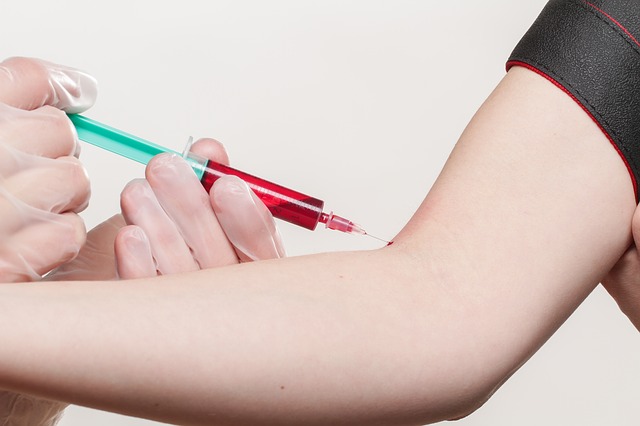
Researchers can now detect Alzheimer’s disease by a blood test 20 years before the actual symptoms begin to appear and that too with 94% accuracy. The blood test may even be more accurate than PET brain scans.
The new study was conducted by researchers from Washington University School of Medicine in St. Louis.
The findings, published Aug. 1, 2019, in the journal Neurology, represent another step toward a blood test to identify people on track to develop Alzheimer’s before symptoms arise.
So, what does it mean for a common Alzheimer’s sufferer? How does it will help researchers to speed up the research process?
Everything about the research in this article. So, let’s get started.
Basis of research
Up to two decades, before people develop the characteristic memory loss and confusion of Alzheimer’s disease, damaging clumps of protein start to build up in their brains.
This protein is termed as Alzheimer’s protein amyloid beta. Researchers from Washington University School of Medicine in St. Louis report that they can measure levels of the Alzheimer’s protein amyloid beta in the blood and use such levels to predict whether the protein has accumulated in the brain.
When blood amyloid levels are combined with two other major Alzheimer’s risk factors – age and the presence of the genetic variant APOE4 – people with early Alzheimer’s brain changes can be identified with 94% accuracy, the study found.
Research methodology
The study involved 158 adults participants over age 50. All but 10 of the participants in the new study were cognitively normal, and each provided at least one blood sample and underwent one PET brain scan.
The researchers classified each blood sample and PET scan as amyloid positive or negative. Amyloid positive signifies that he/she is suffering from Alzheimer’s.
What did researchers found?
The researchers found that 88% of time the blood test was not accurate enough for a clinical diagnostic test.
In an effort to improve the test’s accuracy, the researchers incorporated several major risk factors for Alzheimer’s.
- Age is the largest known risk factor; after age 65, the chance of developing the disease doubles every five years.
- A genetic variant called APOE4 raises the risk of developing Alzheimer’s three- to fivefold.
- And gender also plays a role: Two out of three Alzheimer’s patients are women.
It’s known that women are more affected by Alzheimer’s than the men, but recent research finds out why Alzheimer’s affects more women than men.
When the researchers included these risk factors in the analysis, they found that age and APOE4 status raised the accuracy of the blood test to 94%. Sex did not significantly affected the analysis.
Further, the results of some people’s blood tests initially were considered false positives because the blood test was positive for amyloid beta but the brain scan came back negative.
But some people with mismatched results tested positive on subsequent brain scans taken an average of four years later.
The finding suggests that, far from being wrong, the initial blood tests had flagged early signs of disease missed by the gold-standard brain scan.
What does it mean for Alzheimer’s sufferer?
This study is a key step toward a blood test to diagnose people on track to develop the devastating disease before symptoms arise. Such a test may become available at doctors’ offices within a few years.
But its benefits to common Alzheimer’s sufferer will be much greater once there are treatments to halt the disease process and forestall dementia.
Researchers need to research on treatment and this blood test will help researchers to speed up the screening process of Alzheimer’s for clinical trial and research. Currently PET scan is used for screening which is time consuming and expensive. Blood test will greatly reduce the screening time and cost.
“If you want to screen an asymptomatic population for a prevention trial, you would have to screen, say, 10,000 people just to get 1,500 or 2,000 that would qualify,” Bateman said. “Reducing the number of PET scans could enable us to conduct twice as many clinical trials for the same amount of time and money. It’s not the $4,000 per PET scan that we’re worried about. It’s the millions of patients that are suffering while we don’t have a treatment. If we can run these trials faster, that will get us closer to ending this disease.”
Source:
The new research was published in the journal Neurology.
Source: Washington University School of Medicine in St. Louis





